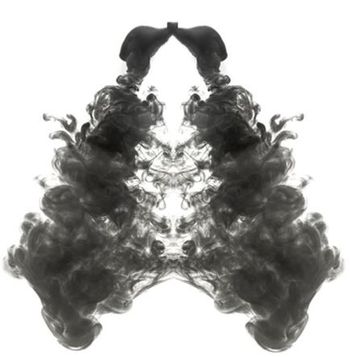
Long-Term Oxygen in COPD No Better Than None
A new study sought to clarify conflicting findings on the impact of supplemental oxygen on exacerbations, hospitalization, and quality of life.
Long-term oxygen was found to be no better than no oxygen in chronic obstructive pulmonary disease (COPD).1 Trials conducted in the 1970s suggested a mortality benefit for supplemental oxygen in advanced COPD.2,3 These results led to recommendations for supplemental oxygen in patients who had COPD with SpO2 less than 89%.
Two small trials since then have suggested no mortality benefit in COPD with mild-to-moderate daytime hypoxemia.4,5 Whether supplemental oxygen improves hospitalizations, exercise performance, and quality of life remains unclear.
The Long-Term Oxygen Treatment Research Group conducted a study at 42 centers in the United States.1 Included were 738 participants randomized to long-term oxygen (n=368) or no long-term oxygen (n=370). Patients had stable COPD with moderate resting desaturation (Spo2 89% to 93%) and moderate exercise-induced desaturation (Spo2 ≥ 80% for ≥ 5 minutes and < 90% for ≥ 10 seconds while walking for 6 minutes). Oxygen group participants with resting desaturation received 24-hour oxygen (n=220); those with exercise-induced desaturation received oxygen during exercise and sleep (n=148). Follow-up occurred for 1 to 6 years.
The results were as follows:
• Time to death or first hospitalization: no significant difference between long-term oxygen and no oxygen (hazard ratio, 0.94; 95% confidence interval [CI], 0.79 to 1.12; P = 0.52).
• All hospitalizations: no significant between-group difference (rate ratio, 1.01; 95% CI, 0.91 to 1.13).
• COPD exacerbations: no significant between-group difference (rate ratio, 0.99; 95% CI, 0.83 to 1.17).
• Quality of life, anxiety, depression, lung function, distance walked in 6 minutes: no significant differences.
• Patients in the oxygen group had 2 hospitalizations for injuries after tripping over equipment and 6 fires or burns.
Possible selection bias was a study limitation (may not have included highly symptomatic patients who declined to participate or whose providers thought they benefited from oxygen). Other limitations included unmasked treatment assignment, nonuniformity of devices (variable oxygen delivery possible), self-reported adherence and hospitalization, and variables not evaluated (immediate effects of oxygen on symptoms, nocturnal oxygen saturation).
The authors concluded, “[A]mong patients with stable COPD and resting or exercise-induced moderate desaturation, we found that long-term supplemental oxygen did not provide any benefit with respect to the time to death or first hospitalization or any sustained benefit with respect to any other measured outcome.”
Take-home Points:
• Historical trials have suggested a mortality benefit of supplemental oxygen in COPD, but later trials have not confirmed this.
• A randomized trial found no significant difference between long-term supplemental oxygen and no oxygen in time to death or first hospitalization in patients with stable COPD and resting or exercise-induced moderate hypoxemia.
• There were no significant between-group differences in all hospitalizations, COPD exacerbations, quality of life, anxiety, depression, lung function, and distance walked in 6 minutes.
• Adverse events related to oxygen use included tripping over equipment and fires and burns.
References:
References
1. Long-Term Oxygen Treatment Trial Research Group. A randomized trial of long-term oxygen for COPD with moderate desaturation. N Engl J Med. 2016;375:1617-1627.
2. Nocturnal Oxygen Therapy Trial Group. Continuous or nocturnal oxygen therapy in hypoxemic chronic obstructive lung disease: a clinical trial. Ann Intern Med. 1980;93:391-398.
3. Medical Research Council Working Party. Long term domiciliary oxygen therapy in chronic hypoxic cor pulmonale complicating chronic bronchitis and emphysema: report of the Medical Research Council Working Party. Lancet. 1981;1:681-686.
4. Chaouat A, Weitzenblum E, Kessler R, et al. A randomized trial of nocturnal oxygen therapy in chronic obstructive pulmonary disease patients. Eur Respir J. 1999;14:1002-1008.
5. Górecka D, Gorzelak K, SliwiÅski P, et al. Effect of long-term oxygen therapy on survival in patients with chronic obstructive pulmonary disease with moderate hypoxaemia. Thorax. 1997;52:674-679.
Newsletter
Enhance your clinical practice with the Patient Care newsletter, offering the latest evidence-based guidelines, diagnostic insights, and treatment strategies for primary care physicians.



































































































































